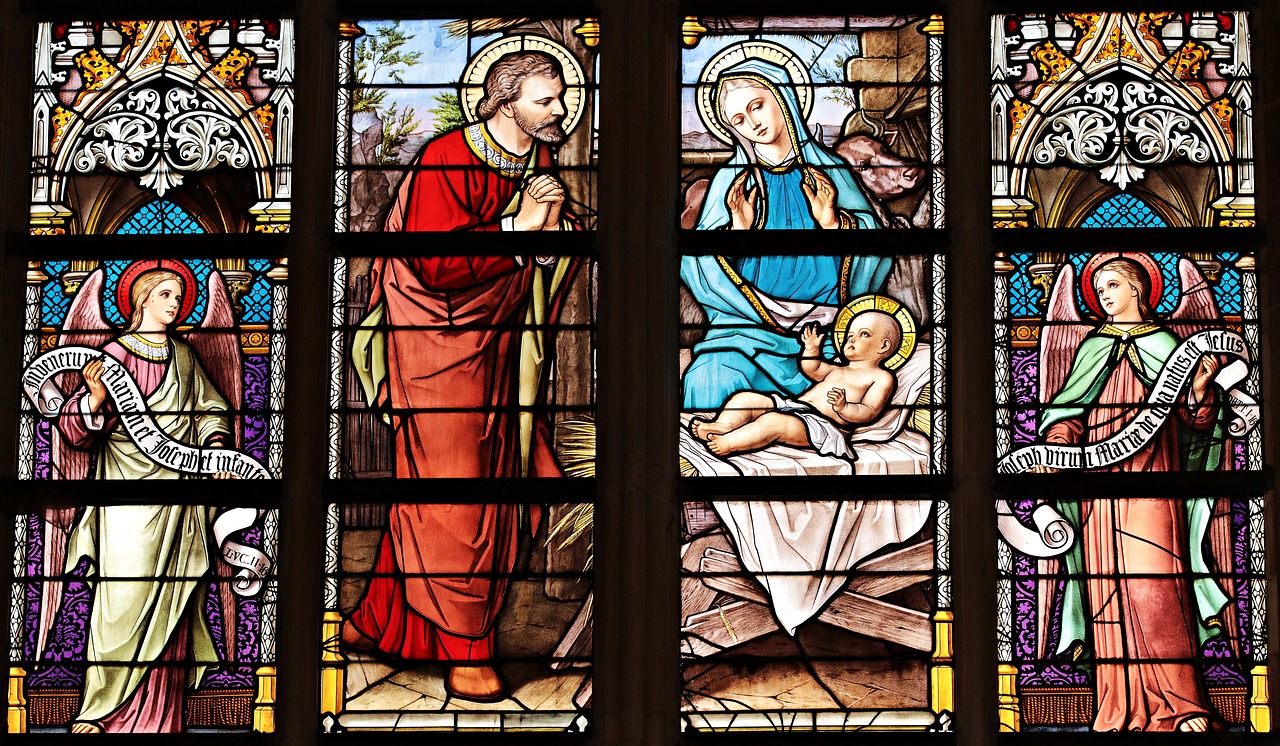Last week we saw that mystical consciousness is as old as the hills. Most of the great scientists of our own age also came to see the world this way – unitively and reverentially. The roots of what we call the Christian mystical tradition, therefore, predate the historical Jesus. This is consistent with the theology of the Incarnation that the eternal Word entered time and space in the person of Jesus in an unprecedented and unrepeatable way. It is worth lingering on this paradox of ‘tempiternity’ – Raimon Panikkar’s word for the integration of time and eternity in a single awareness – because it highlights what is distinct about Christian experience. It also explains why Scripture and the words of Jesus can be understood in so many ways. This same mystery shows how we enter into the common ground of humanity through a deep penetration of our own tradition. By staying in our own faith – provided we plummet its depths – we emerge where the Risen Jesus meets us, in a realm without boundaries. The world has never needed mystical wisdom more urgently, both to transcend its self-destructiveness and to stop differences from becoming divisions and excuses for violence.
The roots of Christian mystical wisdom are in the deepest chambers of the heart of Jesus. The human heart – a universal symbol of wholeness as well as interiority – is notoriously difficult to discern. We could not hope to see far into the heart of Jesus had he not specifically told us that he has “disclosed to you everything I have heard from my Father” (Jn 15:15). We are called his friends, those from whom he conceals nothing. This extraordinary revelation, together with all it suggests about the divine relationship to humanity, is at the core of Christian faith and underlies every interpretation of the Cross and Resurrection.
Jesus is called ‘teacher’ more often than by any other title in the New Testament. We learn from him, as the word disciple (from discere, to learn) implies. Like any good teacher Jesus shares what he knows by stretching our minds and expanding our capacity for gnosis, first-hand knowledge through personal experience. This is what the Second Vatican Council called the universal vocation to holiness and why it so emphasised the recovery of the contemplative tradition. One of the best methods for teaching like this is not to pump information in but to ask questions. Mystical experience thrives when the mind is open and this is what questions do.
Among the many questions Jesus asks perhaps the pivotal one – that also shows how his experience of the Father becomes our own – is ‘who do you say that I am?’ (Lk 9:18; Mt16:15). It is not invasive. Ignore it if you like. But if we listen to it, it leads us, like Alice, down a deep tunnel into a world of extraordinarily intense reality and illumination that Jesus calls the Kingdom. It is as if, by listening to this question, we are tricked into facing the basic question of human consciousness we like to postpone indefinitely: ‘who am I?’ Christian mystics have always seen that self-knowledge is inseparable from our knowing God. ‘May I know myself that I may know Thee’, St Augustine prayed. Jesus’ own self-knowledge is the basis of his humble authority for asking his question. Mystical wisdom is humility. ‘I know where I have come from and where I am going’ (Jn 8:14) It is as if Jesus, the teacher of the Gospels and the teacher within our hearts, wants us to be able to say this about ourselves.
Basileia, the Greek word for ‘kingdom’ is better translated as ‘reign’. This reminds us that the kingdom of God is not a place we are going to or a reward we earn. It is the presence of the pure being of God in which all dualities are transcended, though not destroyed. ‘You cannot say, ‘look here it is’ or ‘there it is’, because in fact the kingdom of God is within/among you’ (Lk 17:20). The preposition here, eu, means both in and among and so, like much of St Paul’s grammar, evokes both mystical and social nuances. Mystical and moral, contemplative and active, the Gospels are an infinitely fertile source of spiritual growth. They change meaning according to the conditions they are read in and adapt to the intelligence of the reader’s heart. Contemplative prayer and living Word of Scripture have jointly formed the Christian mystical tradition. Rooted in the experience of Jesus the Christian mystical tradition simply means entering the Kingdom in loving union with him, illuminated by his word, in the unique circumstances of our life.
Jesus did many things. He forgave sins, healed the sick, fed the hungry, raised the dead, calmed storms, spoke parables, and withdrew regularly to be silent and alone in prayer. But the import of all he said and did was the manifestation of the Kingdom. ‘I am not the source of the words I speak to you. It is the Father who dwells in me doing his own work. Believe me when I say that I am in the Father and the Father is in me’ (Jn 14:10-11).
This claim to union with God and Jesus’ assurance about the sending of the Spirit led – over several centuries – to the Trinitarian model of Christian mystical language. This, however, as we will see in the course of this series is usually more like the language of the bedroom than the lecture room. So it is not surprising that the mystics of Christianity have clashed quite regularly with its academic and bureaucratic officers. Neither Judaism nor Islam, our sister faiths, are so intense about doctrinal orthodoxy. Yet the mystic is still often impelled, at personal risk, to find words for experience that awoke in the silence of union in the heart. Jesus, the model of the Christian contemplative, also showed how the experience of God’s love demands expression to bring about revolution in human consciousness.
We enter the Kingdom through a transformation of consciousness in the other centredness of love. The Beatitudes describe what the world looks like afterwards. Love is the currency of the Kingdom and the command to love is the great simplification that brings the moral and the mystical together. Christianity is essentially a mystical religion because it makes no sense outside the unitive vision in which all opposites are reconciled. Even enemies become the ones we love. Jesus taught contemplation and non-violence as the equal pillars of the Kingdom.
As the Christian disciple grows into this, nurtured by word, sacrament, community and dialogue with other faiths, his experience becomes ours. Christian mystical experience is essentially just the Christian life. By living it we see that the great indwelling which he sings of in the Farewell Discourses – ‘as you Father are in me and I in you, so also may they be in us’ (Jn 17:21) – is not just words.
Laurence Freeman OSB
Further Readings:
The Roots of Christian Mysticism, Olivier Clement





